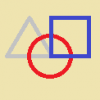I'm very interested to read what you Daobums have to say about this, especially those with years of experimentation.
As I've said in another post I'm weight training at the moment and it's pretty brutal 3 times per week full body. I'd say it's an intermediate workout. It mixes really nice with some some Taoist practices. I do them separately of course at totally different times.
I do iron shirt and six sounds. I feel this aids in recovery massively and every session I either get stronger or better at maintaining form with the weights. I'm also certain the 3 sets of 20 breathing squats i'm doing supersetted with breathing pull overs really helps my stance develop too.
Now say for a contrast. When I was taught a tendon changing set in Taiwan, the teacher strictly was against weightraining and mixing it with tendon changing . I can appreciate this for sure.
I'd be very interested to know what supplementary strength work you use / swear by and what kind of practices do you find compatible or not, also maybe what kind of sequences do you use, ie lifting at start or end of session etc.
So yeah what works for you in terms of weight training, weight lifting, power lifting, body weight training etc?.
I'd really like if this was a popular thread as I bet you have got some great and varied opinions on this topic.
Look forward to reading your replies...
I think I really start to understand why the Shaolin concentrate on such a strong physical base for their students early on. I think carrying water up mountains every morning would do wonders for your 3 treasures !!




